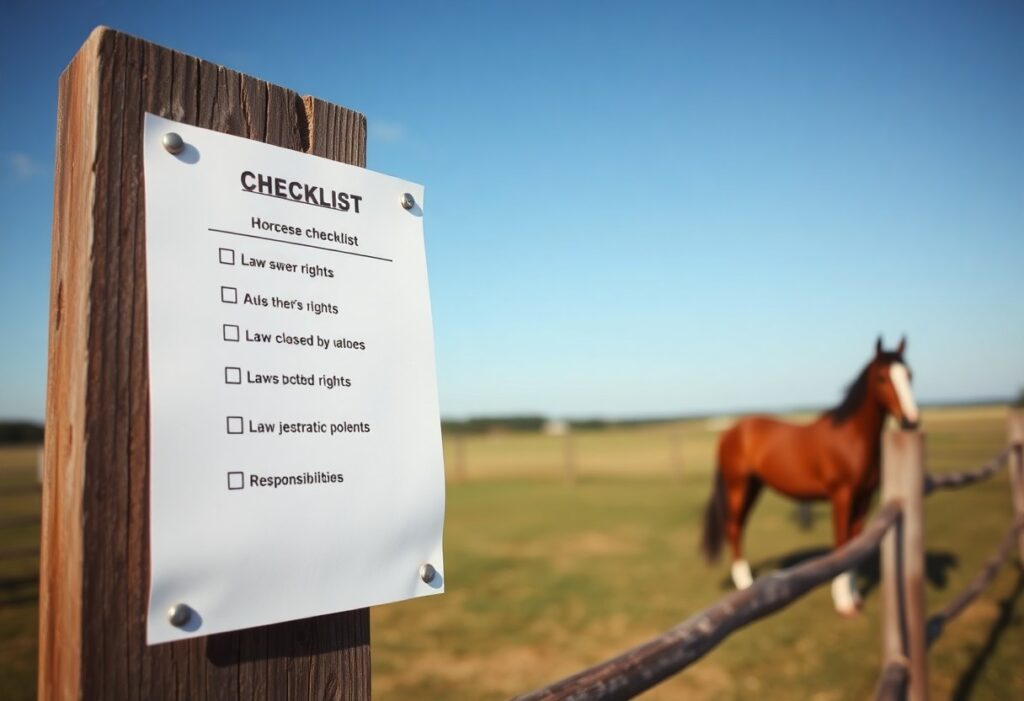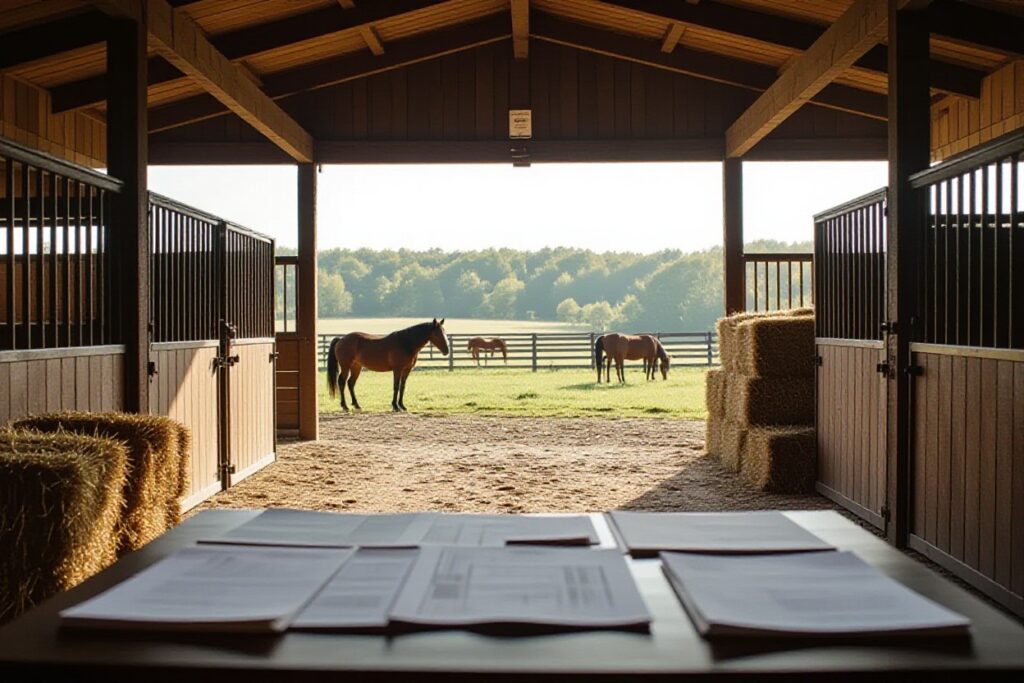Most horse owners in Virginia face a variety of considerations when boarding their equine companions. Understanding the laws, rights, and responsibilities associated with boarding your horse is imperative for ensuring a smooth experience for both you and your horse. Here is a comprehensive checklist to guide you through the process.
1. Research Facilities: Start by evaluating different boarding facilities in your area. Look for amenities that meet your horse’s needs, such as turnout areas, stabling conditions, and feeding schedules. Visit the facilities in person to assess cleanliness and the general environment.
2. Review Boarding Contracts: Before signing a boarding contract, read it carefully. Pay close attention to the terms and conditions, including fees, cancellation policies, and the duration of the boarding agreement. Ensure it outlines your rights concerning access to your horse.
3. Check Licensing and Regulations: Confirm that the boarding facility complies with Virginia’s agricultural laws, including any necessary licenses. Virginia law may require specific standards for operating stables and handling animals.
4. Evaluate Liability Issues: Understand the liability clauses in your boarding contract. Virginia law generally limits the liability of horse boarding facilities, meaning you may assume more risk than you expect. Look for insurance coverage options for additional peace of mind.
5. Horse Health Records: Ensure you provide up-to-date health records for your horse. Facilities may require proof of vaccinations, deworming, and medical history. Your horse’s health will contribute to overall safety at the facility.
6. Establish a Feeding Program: Discuss feeding options with the facility manager. Understand how often your horse will be fed, what types of feed are provided, and if you can bring your own feed. Having a clear feeding plan is vital for your horse’s wellbeing.
7. Inquire About Turnout Policies: Know the facility’s policies regarding turnout time. Regular exercise and access to pasture are imperative for your horse’s health. Discuss the frequency and duration of turnout sessions with the boarding staff.
8. Check for Emergency Protocols: Ask about the facility’s protocols in case of emergencies, such as health issues or severe weather conditions. Understanding these procedures can help you feel secure about your horse’s care.
9. Establish Communication: Communication is key to ensuring your horse’s needs are met. Keep contact information updated with the boarding facility and foster a good relationship with staff for ongoing care and management.
10. Know Your Rights: Familiarize yourself with your rights as a boarder in Virginia. You have the right to access your horse and receive information about its care. If there are concerns, address them promptly with the facility manager.
By following this checklist, you can ensure that you and your horse have a positive boarding experience in Virginia. Awareness of the local laws, your rights, and the responsibilities involved will contribute greatly to your peace of mind.











